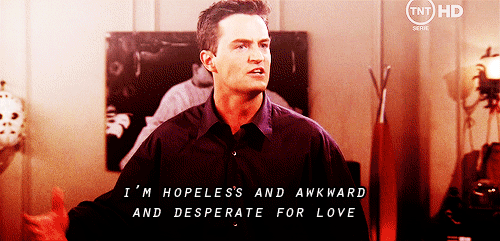A consistent theme throughout my life is that I tend to be the quietest person in the room. You can blame that on the fact that I tend to struggle to know what to say quickly enough in a group conversation. Or if I think of something clever to say, I say it so softly that only the person next to me hears. That person then says it loudly and get all the credit.
Don’t even get me started on how on an evaluation I’ve gotten for a leadership role, the comment they left started with, “Although you’re quiet...” Feeling like I have to talk more to gain people’s attention or respect is always hard.
However, when I get compliments like, “I love how deep you think,” it makes me all warm and fuzzy. Because I know I do! And a couple years ago, when I learned what it meant to be introverted, I was relieved to know that the reason I’m quiet isn’t really because I’m “shy.” It’s just because I gain energy from being alone, rather than being with people!
So without further ado, here are some things that the “quiet” or “shy” person in the room wants you to understand about them:
1. We struggle to communicate with new people
Unpopular opinion perhaps, but I had the most sympathy for Mr. Darcy in "Pride and Prejudice." He really cares about Elizabeth, but she can't shake the bad first impression she had of him. Much like Mr. Darcy, people think I'm unfriendly at first because I don't know what to say before there's been any common ground established.
How do I know that you won't be weirded out by my weirdness if I don't know you yet?
2. Our verbal expression won't always be smooth...in fact, it usually isn't
I sometimes stutter or stumble to find words, even around people I know well. As said by Shakespeare, "All the world's a stage/ And all the men and women merely players." The extroverts often have the lead roles on this "stage" because they're talkative, easily intimidating the introverts and making them retreat to their comfort zone (backstage).
We might never be able to articulate what we feel as well as extroverts, so just being understanding of that means a lot to us. We're not trying to annoy you or be secretive, it's just how we are.
3. Our idea of fun is often different to other people's
I've always been one to geek out over comics or online quizzes, and I've loved to read since the age of three. Most introverts are happiest when engaged in simple, laidback activities. This doesn't mean we never enjoy parties, but we probably won't say yes to every party invitation.
4. If we have trouble being verbally affectionate, it doesn't mean we don't care
We most likely care a lot more than you think we do, but being verbally affectionate doesn't come naturally to us. Don't worry though, because our calm presence makes us ideal if you're feeling stressed and just need someone to sit with until you feel better.
5. We don't like being pushed into partying for other people's entertainment
If a person who's normally reserved wants to drink, they should only drink if they're feeling it. Not just because someone wants to see what they'd be like if they were drunk, or because they feel the need to fit in with their more outgoing friends at a party.
6. Trying to date often makes us feel like Chandler Bing
We have a hard time making friends, so it makes sense that it'd be hard to find a partner, since your partner should be your best friend. That's a lot of pressure. And social energy. Therefore, people asking why we haven't dated in a long time tends to make us sweat.
7. We're slow to speak, but always quick to listen
Most introverts especially love deep conversations. They're a rarity with the hustle and bustle of college life, but when they happen, we're all ears.
8. We generally have a harder time with surprises than extroverts
If you share news with us that's surprising and we don't say much, understand that we just don't like saying anything that isn't well-thought out.
9. We sometimes have defense mechanisms when we're nervous
We make these kinds of jokes as a way to calm our nerves, most likely.
10. We know how to be alone, and aren't ashamed of it (usually)
We do our best thinking when we're alone, and we love having downtime to write or watch endless Netflix.


























